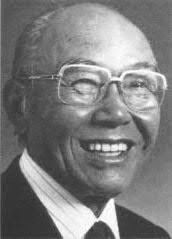A Quote by Karl Jaspers
Nietzsche, driven by the absolute demand of his existential truthfulness, could not abide the bourgeois world, even when its representative had human nobility.
Related Quotes
In the helter-skelter of this book, I didn't develop my views as theory. In fact, I even believe that efforts of that kind are tainted with ponderousness. Nietzsche wrote "with his blood," and criticizing, or, better, experiencing him means pouring out one's lifeblood. It was only with my life that I wrote the Nietzsche book that I had planned.
There are similarities between absolute power and absolute faith: a demand for absolute obedience, a readiness to attempt the impossible, a bias for simple solutionsto cut the knot rather than unravel it, the viewing of compromise as surrender. Both absolute power and absolute faith are instruments of dehumanization. Hence, absolute faith corrupts as absolutely as absolute power.
To avert the danger [posed by theory] to life, Nietzsche could choose one of two ways: he could insist on the strictly esoteric character of the theoretical analysis of life - that is, restore the Platonic notion of the noble delusion - or else he could deny the possibility of theory proper and so conceive of thought as essentially subservient to, or dependent on, life or fate... If not Nietzsche himself, at any rate his successors [Heidegger] adopted the second alternative.
Never sound pompous. You always sound noble, noble. Absolute character of music is nobility. Even popular music can be noble, you see. If it's not noble, then it's not very good... Music is an art of emotion, of nobility, of dignity, of greatness, of love, of tenderness. All that must be brought out in music but never a show of pompousness.
What is the importance of human lives? Is it their continuing alive for so many years like animals in a menagerie? The value of a man cannot be judged by the number of diseases from which he escapes. The value of a man is in his human qualities: in his character, in his conscience, in the nobility and magnanimity, of his soul. Torturing animals to prolong human life has separated science from the most important thing that life has produced - the human conscience.
Metaphysical world.- It is true, there could be a metaphysical world; the absolute possibility of it is hardly to be disputed. We behold all things through the human head and cannot cut off this head; while the question nonetheless remains what of the world would still be there if one had cut it off.




































